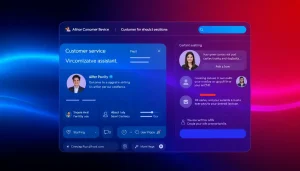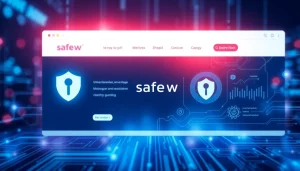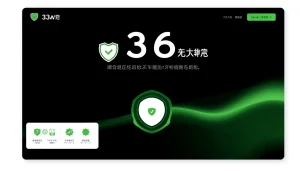Effective Strategies from a Relationship Coach for Building Stronger Connections
Understanding the Role of a Relationship Coach
In today’s fast-paced world, cultivating and sustaining meaningful relationships can be a daunting task. Many individuals and couples find themselves in challenging situations that prompt them to seek guidance. This is where the expertise of a relationship coach comes into play. A relationship coach specializes in helping clients navigate the complexities of their romantic connections, family dynamics, or friendships. But what exactly does a relationship coach do, and how can they facilitate positive change in your life?
What Does a Relationship Coach Do?
A relationship coach provides support, strategies, and insights that help individuals and couples identify issues in their relationships. Their primary role is to guide clients toward achieving their relationship goals by fostering healthier communication, resolving conflicts, and improving emotional intelligence. Unlike therapists, relationship coaches focus on the present and the future, encouraging clients to take actionable steps toward relationship improvement.
Key Skills of a Successful Relationship Coach
Successful relationship coaches possess a unique blend of skills. Here are some key qualities that distinguish top-tier coaches:
- Excellent Communication: They must articulate ideas clearly and listen actively, allowing clients to express their thoughts and feelings without judgment.
- Empathy: A great coach understands the emotional turmoil clients experience, providing a supportive environment.
- Problem-Solving: Relationship challenges often require creative solutions; hence, effective coaches need to think outside the box.
- Goal Orientation: Coaches help clients set realistic relationship goals and develop actionable plans to achieve them.
The Benefits of Working with a Relationship Coach
Investing in a relationship coach can yield significant benefits, including:
- Clarity: Coaches help clients gain clarity on their feelings, desires, and relationship expectations.
- Improved Communication: They teach crucial communication skills that enhance connections between partners.
- Conflict Resolution: Coaches provide tools to navigate and resolve disputes constructively.
- Personal Growth: Working with a coach often leads to increased self-awareness and personal development.
Common Challenges in Relationships and How a Coach Helps
Every relationship faces challenges, but addressing them proactively is crucial for growth and satisfaction. Here are common relationship hurdles and how a coach can assist:
Addressing Communication Issues
Miscommunication can lead to misunderstandings and resentment. A relationship coach can teach clients how to express their thoughts and feelings clearly, helping couples become more aligned in their communication styles.
Navigating Conflict Resolution
Conflicts are inevitable in any relationship; however, how couples choose to handle them is paramount. Coaches utilize various conflict resolution techniques, such as active listening and non-confrontational dialogue, to help partners reach amicable solutions.
Setting Relationship Goals with Your Coach
Much like any other endeavor, having defined goals in relationships is crucial. A relationship coach assists clients in establishing realistic and achievable relationship goals, whether it’s improving intimacy, increasing trust, or enhancing teamwork within the partnership.
Finding the Right Relationship Coach for Your Needs
Finding a relationship coach who resonates with your needs and expectations is essential to reap the most benefits from coaching sessions. Here are tips to guide your search:
Important Qualities to Look For
When evaluating potential coaches, consider the following attributes:
- Certification: Ensure the coach has relevant training and credentials, signifying a solid foundation in relationship coaching practices.
- Experience: Look for coaches with a proven track record in successfully assisting clients with similar issues.
- Approachability: A coach’s personality should resonate with you; comfort and trust are fundamental for effective coaching.
Evaluating Coaching Styles and Approaches
Every coach has their methodology. Some may focus heavily on communication techniques, while others emphasize emotional intelligence or goal setting. Understanding their approach can help you choose someone whose style aligns with your needs.
Questions to Ask During Your Initial Consultation
Taking advantage of initial consultations can help you make an informed decision. Here are some questions to consider:
- What is your coaching style, and how do you tailor your approach to individual clients?
- What are your qualifications and experience in relationship coaching?
- How do you define success in a coaching relationship, and how do you track progress?
Real-Life Success Stories: Transformations through Coaching
One of the best ways to gauge the effectiveness of a relationship coach is by examining real-life success stories. Here, we explore compelling transformations that shed light on the potential of relationship coaching.
Case Study: Strengthening Marital Bonds
Consider the case of Sarah and John, a couple facing severe communication breakdown and emotional detachment. They sought a relationship coach to facilitate their reconnecting journey. Over several sessions, the couple learned valuable communication techniques, setting them on the path toward understanding each other’s perspectives. The result? A renewed bond and improved intimacy, leading to a fulfilling partnership.
Testimonials from Clients Who Found Success
Numerous clients praise how coaching transformed their relationships. One client mentioned, “I never realized how my communication style affected my partner’s feelings. Working with my coach helped us rebuild trust and connection.” Testimonials like this highlight the impact a skilled coach can have on relationship dynamics.
Measuring Progress and Relationship Growth
Measuring the effectiveness of coaching can be subjective; however, clients often end sessions feeling more empowered and knowledgeable about their relationship dynamics. Tools such as satisfaction surveys and relationship health checklists can help gauge progress, providing both the coach and clients with valuable insights into growth.
Continuing the Journey: Beyond Coaching Sessions
Coaching should not be viewed as a one-time solution but rather a stepping stone toward sustained improvement in relationships. Here we discuss how to continue the journey beyond formal coaching sessions.
Incorporating Coaching Techniques into Daily Life
It’s essential for clients to incorporate what they learn during coaching sessions into their everyday interactions. Techniques such as active listening and emotional validation can enhance daily conversations, paving the way for deeper connections.
Building a Support Network for Long-Term Success
Encouraging clients to create a supportive network is crucial. Engaging friends and family members in positive discussions regarding relationships, attending workshops, or joining support groups can contribute to a culture of ongoing growth and learning.
Resources for Ongoing Relationship Improvement
Reading books on relationships, attending seminars, or participating in workshops can further enrich one’s understanding of relational dynamics. Such resources empower clients to proactively educate themselves, thus continuing their journey even after coaching ends.














Post Comment